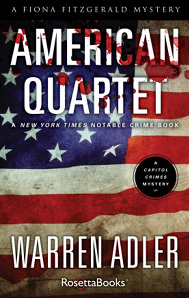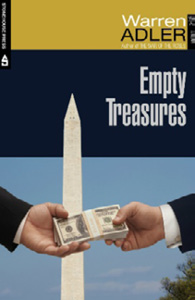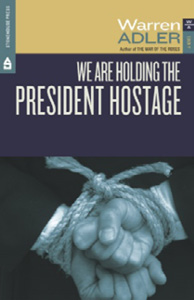Target Churchill (30 page)
Authors: Warren Adler
Wearing a paint-stained blue siren suit, a cigar stuck in his mouth, Churchill put a layer of cement on a brick he was holding, set it carefully on the garden wall he was building at Chartwell, and pressured it skillfully into place. He was so absorbed in his work that he did not see Thompson come up the path until he was almost in front of him on the other side of the wall.
“Well, sir, I'm afraid I must be off. Just came to say good-bye,” Thompson said. “I've paid my respects to Mrs. Churchill.”
Churchill continued his work. His cigar, which he held in his mouth, had gone out and Thompson leaned over to light it.
“Whatever will I do without you, Thompson?” Churchill said, sucking in the smoke.
“I'm sure you'll find someone else to light your cigars, Prime Minister. It's time I stayed put in my other life.”
Churchill took another deep puff, and after assuring himself that the brick was plumb, straightened and contemplated his old comrade. Their eyes met and held. It was, Churchill knew, an emotional moment for both of them. Over the years, they had bonded and enjoyed an intimacy that few men ever experienced.
“
La commedia è finita,”
Churchill said, “Now why did I quote that language?”
“Because it is quite true. For me, the play is over. I must say, sir, I enjoyed every minute of our association.”
“And here I am, Thompson, still vertical. I suppose that can be attributed to your service as my keeper and shadow.”
“And hoverer, sir.”
“I must say, Thompson, that with you around, my intrepid hovering shadow, I felt always safe from harm. Our recent American foray, I owe to Clementine, who harbored visions of the Wild West and dangers from vicious outlaws and hostile Indians. Thankfully, we have come through the trek all wagons intact and all personnel accounted for.”
“We can be thankful for that, sir.”
Thompson paused and turned his eyes away. Churchill knew Thompson's usually repressed emotions had risen to the surface. He was having similar difficulties. His eyes welled with tears. Then both men seemed to recover simultaneously. Churchill cleared his throat.
“I wonder, Thompson, if the trip was worth the candle.”
“You said what had to be said, sir. They will understand soon enough.”
“Do you think so, Thompson? I am being pilloried by friends and enemies alike.” He lowered his voice. “Mr. Attlee, I'm afraid received a bit of a shock preview of what I was trying to say. I informed him about Maclean. I must confess that I enjoyed his reaction.”
“Did he have his doubts about the information?”
“I must tell you, Thompson,” Churchill chuckled. “He did not. And it didn't surprise me. He has come to believe that the upper classes are the ruination of our country, forgetting that despite his Labour credentials he is one of its members.”
“Do you think he will shut Maclean down?”
Churchill smiled.
“He did understand the benefits of keeping the man in our sights for the time being. I did not have to suggest it. He may be dull, but he is not stupid.”
“So Maclean will stay at his post?”
“I believe so. As long as he is useful to us.”
“I'm sure Miss Stewart will be relieved.”
“Ah, yes, Thompson,” Churchill remembered. “I did receive a letter from her a few days ago. She sends her regards to you, Thompson, and calls her experience one of the most memorable in her life. Poor child. She wrote she had not a shadow of doubt about the first secretary's devotion to Great Britain.”
“Poor child, indeed,” Thompson said. “I'm afraid she will one day learn the truth the hard way.”
“They will all have to learn the truth the hard way.”
Churchill reached across the garden wall and grasped Thompson's hand. The wall separating them foreclosed on the possibility of an embrace, which would have been out of character for both men.
“Good-bye, old friend,” Churchill said, eyes moistening, his voice cracking.
Thompson nodded and swallowed hard.
“Do you remember, sir, what President Roosevelt said to me when you introduced me to him at your first meeting at sea?”
“I do.”
“With respect, sir, it bears repeating at this moment. I shall always cherish the words until the end of my days. He said: âTake care of the prime minister. He is the greatest man in the world.'”
Churchill's eyes could not contain his tears, which trickled down his pink cheeks. For the first time in his life, he felt unable to find words. All he could do was nod.
“God keep youâ¦.” Thompson paused and cleared his throat, “â¦Prime Minister.”
Through blurred vision, Churchill watched him turn and disappear down the garden path.
Winston Churchill became Prime Minister again in 1951. He served until 1955. He won the Nobel Prize for Literature, accepted the Order of the Garter, and became an Honorary Citizen of the United States. He died on January 24, 1965, at the age of ninety-one, the same day and time as his father, as he had predicted.
Lavrentiy Pavlovich Beria was arrested while Nikita Khrushchev was premier of the Soviet Union. He was executed in December 1953 for crimes against the state.
Josef Stalin, who has been blamed for the death of millions, died on March 5, 1953, exactly seven years after the date of Churchill's “Iron Curtain” speech. He is buried in the Kremlin.
Donald Maclean escaped to the Soviet Union from London in the spring of 1955. His wife, Melinda, and their children joined him two years later. He learned Russian, worked in a Soviet foreign policy think tank, and died in Moscow at the age of sixty-nine. His escape was shrouded in mystery, and in the opinion of many, could not have happened without the tacit consent of MI6.
Harry Truman died in his hometown of Independence, Missouri, in 1972 at the age of eighty-eight. Although he left office as an unpopular president, he is now one of the most revered presidents of the twentieth century.
W. H. Thompson died in the seventies. He wrote a book entitled
I Was Churchill's Shadow.
The last words in his book stated: “I acknowledge Winston Spencer Churchill as the greatest man I have ever known, and no words can express adequately my pride to have been some service to him.”
Victoria Stewart returned to England, founded a secretarial school in Hampshire. She married an accountant, had two children, and died in 2001.
Franz Mueller's body was never found, although in 2002, a construction crew building a shopping mall near Jefferson City uncovered a World War II German PPC 7.92 Mauser and a Luger pistol of the same vintage. Some small traces of clothing and paper currency were found nearby. The currency was too damaged to determine the denominations and, therefore, was presumed counterfeit.
Stephanie Brown's disappearance remained on the books of the D.C. Metropolitan Police Department for ten years. Her parents offered a reward of $10,000 for information about her whereabouts, later raising it to $25,000. Both parents died in the eighties, broken-hearted and still believing that their daughter was alive. The area in which she was buried became a national park. Her body was never found.
The “Iron Curtain” speech grew in influence as time went by. It became the clarion call of the Western democracies and made it easier for the Truman Doctrine to succeed and save Europe from further Communist incursions.
The Soviet Union collapsed in 1992.
For complete catalogue including novels, plays, and short stories visit:
www.warrenadler.com
If you enjoyed this title, do leave a review on
Goodreads
.
Connect with Warren Adler on:
Facebook
â
www.facebook.com/warrenadler
Twitter
â
www.twitter.com/warrenadler
FICTION
Banquet Before Dawn
Blood Ties
Empty Treasures
Flanagan's Dolls
Funny Boys
Madeline's Miracles
Mourning Glory
Natural Enemies
Private Lies
Random Hearts
Residue
Senator Love
Target Churchill
The Casanova Embrace
The David Embrace
The Henderson Equation
The Housewife Blues
The Serpent's Bite
The War of the Roses
The War of the Roses: The Children
The Womanizer
Trans-Siberian Express
Treadmill
Twilight Child
Undertow
We Are Holding the President Hostage
American Quartet
American Sextet
Death of a Washington Madame
Immaculate Deception
Senator Love
The Ties That Bind
The Witch of Watergate
Washington Masquerade
Jackson Hole: Uneasy Eden
Never Too Late For Love
New York Echoes
New York Echoes 2
The Sunset Gang
Dead in the Water
Libido
The Sunset Gang: The Musical
The War of the Roses
Windmills
Churchill: Speaker of the Century
(Pulitzer Prize nomination)
Confessions of a White House Ghost Writer
The Wit and Wisdom of Ronald Reagan
Speak Like Churchill, Stand Like Lincoln: 21 Powerful Secrets of History's Greatest Speakers
“Winston Churchill” (
A&E Biography
)
Eisenhower and Churchill: The Partnership That Saved the World
Nixon's Ten Commandments of Statecraft
Which President Killed a Man?
Citizen Shakespeare: A Social and Political Portrait
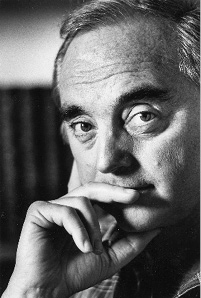
Acclaimed author, playwright, poet, and essayist
Warren Adler
is best known for
The War of the Roses
, his masterpiece fictionalization of a macabre divorce adapted into the BAFTA- and Golden Globeânominated hit film starring Danny DeVito, Michael Douglas, and Kathleen Turner. Adler's internationally acclaimed stage adaptation of the novel will premiere on Broadway in 2015â2016.
Adler has also optioned and sold film rights for a number of his works, including
Random Hearts
(starring Harrison Ford and Kristen Scott Thomas) and
The Sunset Gang
(produced by Linda Lavin for PBS's American Playhouse series starring Jerry Stiller, Uta Hagen, Harold Gould, and Doris Roberts), which garnered Doris Roberts an Emmy nomination for Best Supporting Actress in a Miniseries. In recent development are the Broadway production of
The War of the Roses
, to be produced by Jay and Cindy Gutterman,
The War of the Roses: The Children
(Grey Eagle Films and Permut Presentations), a feature film adaptation of the sequel to Adler's iconic divorce story,
Target Churchill
(Grey Eagle Films and Solution Entertainment),
Residue
(Grey Eagle Films),
Mourning Glory
, to be adapted by Karen Leigh Hopkins, and
Capitol Crimes
(Grey Eagle Films and Sennet Entertainment), a television series based on his Fiona Fitzgerald mystery series.
Adler's works have been translated into more than 25 languages, including his staged version of
The War of the Roses
, which has opened to spectacular reviews worldwide. Adler has taught creative writing seminars at New York University, and has lectured on creative writing, film and television adaptation, and electronic publishing. He lives with his wife
, Sunny, a former magazine editor, in Manhattan.
***
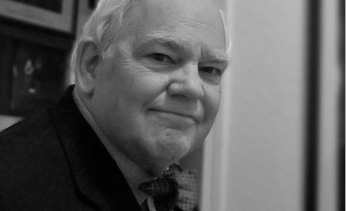
Pulitzer Prizeânominated author of
Churchill: Speaker of the Century
,
James C. Humes
is a former presidential speechwriter who worked for Ronald Reagan, George H.W. Bush, Gerald Ford, and Dwight Eisenhower. Before his speechwriting career, he represented the U.S. State Department in lectures on American government all over the world. He has served as a communications advisor to major U.S. corporations, including IBM and DuPont. He is the author of more than 30 books, and one of the few Americans alive today to have met Churchill, who told him at age 18, “Young man, study history. In history lie all the secrets of statecraft.” A widely-sought speaker across the country, Humes lives in Pueblo, Colorado, and is Visiting Historian at the University of Colorado at Colorado Springs.
